Support the Mission
Why donate?
Because it will change lives. It might even save one.
$50/mo
For one year fully funds three 60-minute Fascial Counterstrain sessions for one person.
$600
Fully funds three Fascial Counterstrain treatments for someone working hard to get their health and hope back after experiencing life-impacting trauma.
$850
Helps fund scholarships for dedicated practitioners who face significat barriers to getting the training they need to become Certified Counterstrainers.
$3000
Covers open access fees so that we can make our research findings available to everyone after they are published in a peer-reviewed journal.
$5000
Covers one month of salary for a critical staff position to ensure program stability and sustainability
$10,000
Invests in the future of Fascial Counterstrain research so that together we can build a better understanding of how it works and how to help get it to more people in need
How will your donation be used?
- Directly funding Fascial Counterstrain treatments for individuals impacted by and recovering from trauma.
- Outreach efforts that build awareness and partnerships with like-minded agencies to coordinate our assistance goals.
- Conducting ongoing research to measure and verify the short and long term effects of Fascial Counterstrain.
- Capacity building investments like hiring critical staff and contractors so that we can expand the scope of our programs and ensure their sustainability.
- To sustain necessary operating costs so that we can deliver exceptional care as a multi-regional organization serving hundreds of people every year.
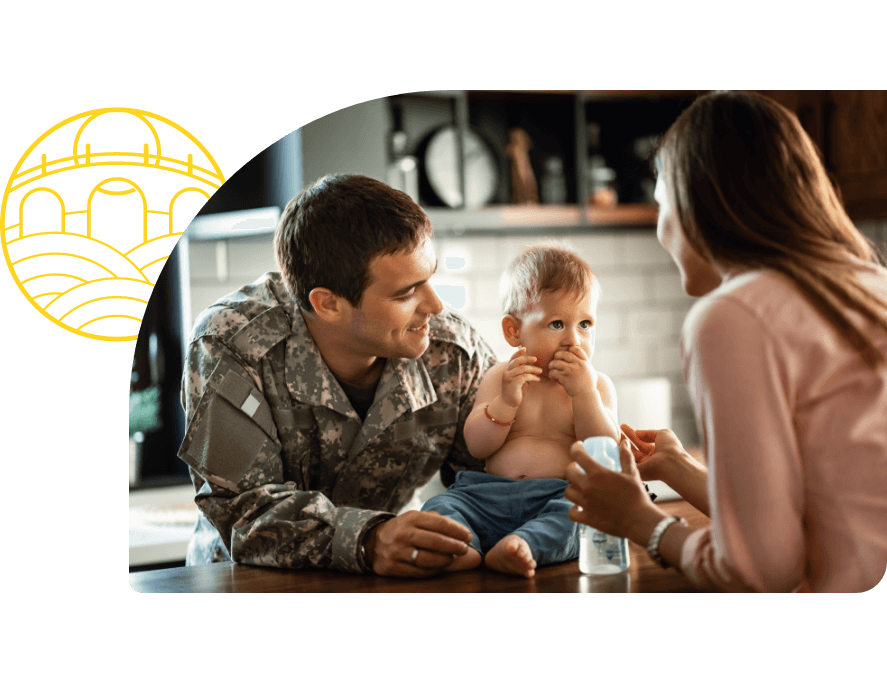
The Problem We’re Solving
Any seasoned Fascial Counterstrain practitioner will be able to avail you with countless stories of helping patients with treatment-resistant conditions that were acutely and negatively impacting their lives.
The Bridge Back Project was founded to make the healing potential of Counterstrain available to the people who experience the highest rates of injury and trauma, and who are at the greatest risk of being underserved or excluded from existing healthcare systems.
To do that there are numerous obstacles to overcome to make Fascial Counterstrain more accessible:
- General lack of public awareness about Fascial Counterstrain's existence and benefits
- Lack of clinical research that measures and verifies the mechanism and effects of Fascial Counterstrain
- A limited, albeit growing, number of qualified Counterstrain practitioners due to the many years it takes to master the technique
- Common barriers to accessing care - distrust of healthcare systems, financial hardship, discrimination, transportation challenges, geographic availability, etc, - that impede someone's ability to get the care the need in order to recover and heal from life impacting injury or trauma
It's a complex problem and it requires dynamic, coordinated solutions.
While anecdotal evidence abounds, no clinical research trials had been conducted until 2020. The Bridge Back Project is committed to conducting as well as sponsoring independent research that measures and verifies Fascial Counterstrain's effects on the body when used to treat a wide variety of conditions.
We also recognize that the educational materials currently available are written by and for healthcare providers and are largely inaccessible to the everyday person who may not be able to decipher articles heavy in medical terminology. To that end, we are committed to developing free, public educational resources that help the everyday person understand and familiarize themselves with Fascial Counterstrain so that they are empowered to make informed decisions in their healthcare journeys.
Education only goes so far. Since Fascial Counterstrain is a hands-on, physical medicine technique, nothing creates understanding like a first hand experience. The more people we help to directly experience Fascial Counterstrain, the more people get to decide for themselves if it is a treatment option that works for them and their body. People who have seen positive outcomes experience renewed hope and in turn become the best advocates for their communities, encouraging their friends, families, and colleagues to consider Fascial Counterstrain as a treatment option when confronted with challenging health conditions.
The good news is that Fascial Counterstrain is gaining recognition amongst professional athletes including retired MLS player Diego Valeri and olympic wrestler Helen Maroulis, as well as celebrity health advocates like Tony Robbins. While celebrity endorsement is great for increasing public awareness, it also increases the demand for experienced, trauma-informed Counterstrain practitioners -- of which there is currently a limited supply due to the extensive time and money investments required to become adept at the technique and achieve certification.
In anticipation of the supply-and-demand issue, we're working closely with leading Counterstrain education institutions in the United States to pioneer scholarship programs that will subsidize tuition for aspiring, dedicated aspiring practitioners to help them overcome barriers and bring Fascial Counterstrain to currently underserved patient populations.
We envision a world where Fascial Counterstrain is a household name, not because we think it is the perfect fit for everyone, but because we know it could be life-changing for many injury and trauma survivors who don't even know it exists yet.
For many, Counterstrain can help survivors heal from the inside out. We're working towards a future in which Fascial Counterstrain treatment is accessible to everyone so that individuals recovery from injury and trauma can heal and reclaim the parts of their lives that they have lost...
… and we need your help to do it.
How We're Solving It
Promoting Research
To gain trust and recognition from both the public as well as professionals in the allied health sectors, research is essential. Significant study is requried to collect the data and evidence needed to understand the effects of Fascial Counterstrain when used to health conditions in the body.
Building Awareness
Counterstrain has already helped countless individuals with conditions and injuries over the last 70 years. We have seen improvements in pain management, organ function, emotional coping, sleep, and mobility. Through outreach efforts and collaborations we’re working to educate both the public and the medical community about the application of Fascial Counterstrain to treat the symptoms of trauma where it is stored in the body's tissues.
Direct Support
The more people we help experience Fascial Counterstrain who couldn't or wouldn't otherwise access it, the more people we help heal. Many of our clients come to us after they've lost belief in getting relief or getting better. By providing direct support and removing the burden of cost from our clients, many feel more free to try something new that might work when other strategies have been less successful.
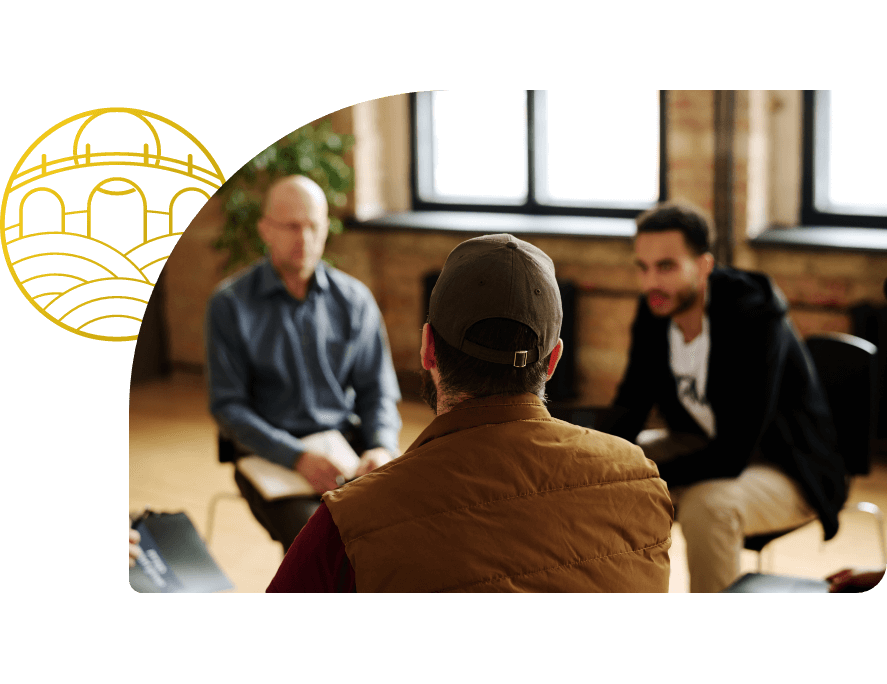
Our Goals
To make Fascial Counterstrain available to the people who need it and will be most positively impacted by getting to experience it.
We are the only Fascial Counterstrain nonprofit working to educate adn build public awareness about Fascial Counterstrain's unique ability to treat not just systems but the root of dysfunction where it is stored in the tissues of the body. Anecdotal reports suggest that Fascial Counterstrain could be a powerful addition to a holistic care plan for people recovering injury, trauma, and chronic conditions.
To make Fascial Counterstrain accessible to as many impacted individuals as possible, we will need to fund their treatments, build a robust canon of research to understand it's effects, and invest in the growth or a large network of exceptionally qualified practitioners capable of meeting growing demand. These needs define our work and guide program goals.
Stories of lives changed by Fascial Counterstrain
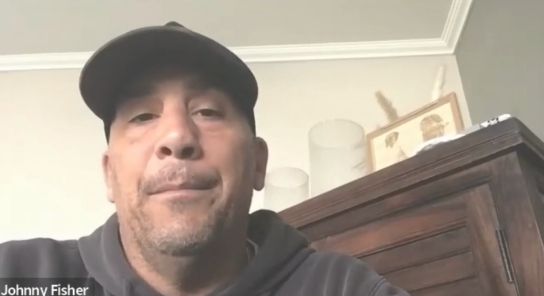
Retired California Highway Patrol Officer Johnny Fisher talks about his experience with receiving Fascial Coutnerstrain as part of the Bridge Back Project's Financial Aid Program. The offscreen voice is Theora Moench, Bridge Back Project’s Executive Director.
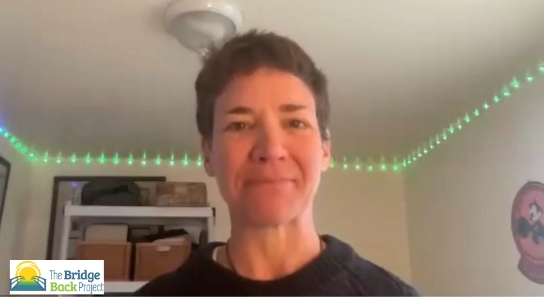
Retired Naval Aviator and professional athlete Dr. Kristin Barnes shares her experience with Fascial Counterstrain. The offscreen voice is Theora Moench, Bridge Back Project’s Executive Director.
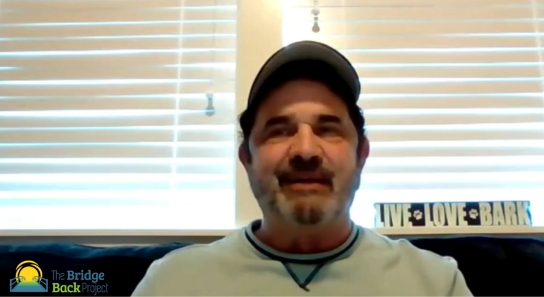
Veteran and retired police officer Ron Hansen talks about his experience receiving counterstrain as part of the Bridge Back Projcet's Financial Aid Program. The offscreen voice is Theora Moench, Bridge Back Project’s Executive Director.
We think about money differently, and we’d like for you to join us.
Our financial philosophy is different from a lot of other organizations.
We’ve broken away from some of the scarcity thinking that limits so many well-intentioned organizations that prevents their ability to scale. We know that our team members are the backbone of our ability to deliver exceptional care.
We are committed to prioritizing our team members because a well-resourced team will provide the best care, think in the most innovative ways, and make the most with what we have so that we can continue to scale the scope of our programs over the long term. We don’t shy away from prioritizing funds to hire and retain incredible staff. We want to be able to attract the best people for the job without asking them to sacrifice the financial well-being of their own families. We pay good people, doing good work, good money. The better people we have on our team, the bigger impact we can have.
Having an exceptional team allows us to take the funds we have and turn them into more funds. It allows us to run compelling fundraising campaigns that directly benefit our impact and research programs. Having an exceptional team ensures that our program recipients receive the best care before, during, and well after their treatments sessions. Having an exceptional team helps us foster a healthy work environment that protects against burn out so that we can keep qualified leaders and staff employed and avoid wasteful spending and turnover.
We know that this is a more holistic approach to using funds than a lot of other organizations out there but we’re invested in creating a sustainable organization that attracts incredible talent so that we can deliver our programs with excellence for not just years but decades to come.
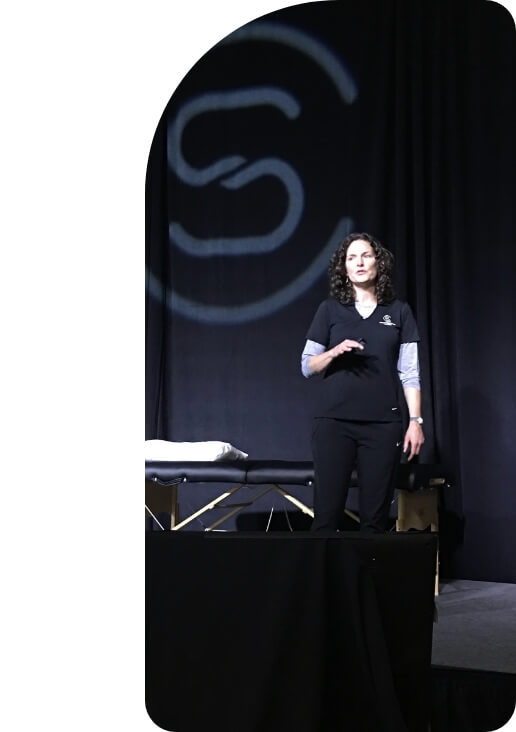
For a brilliant and inspiring breakdown of why we’ve chosen this approach and how it helps us be not only effective but able to grow consistently, check out this video:
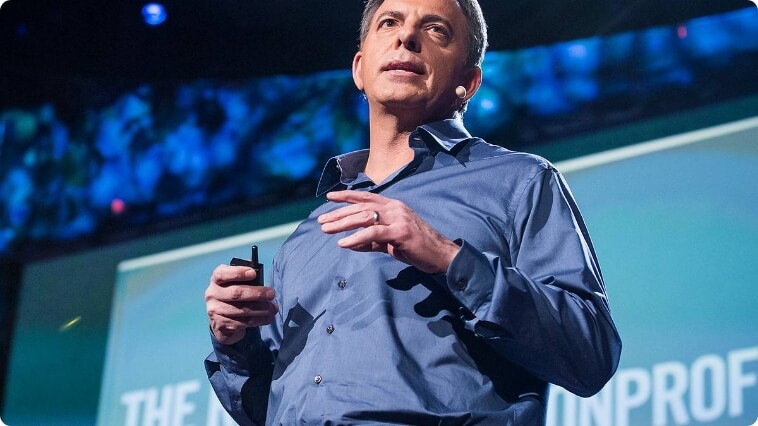
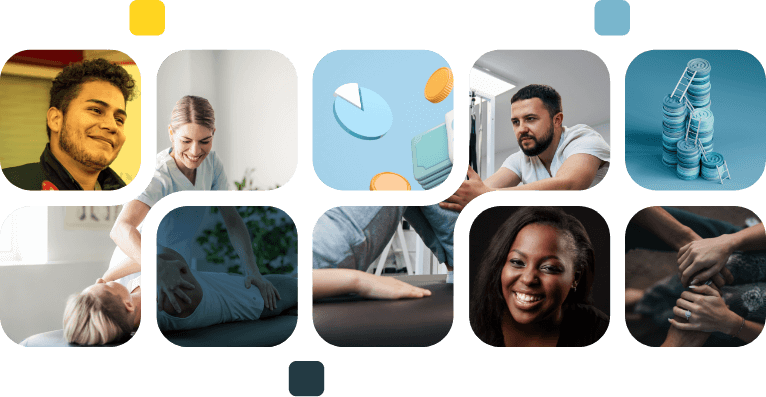
Our Financials
Review how much money we fund-raised and how it was spent.
Frequently Asked Questions
- Is my donation tax deductible? Show Answer Absolutely. We are a 501(c)3 organization and when you donate will provide you a receipt for your donation. Our Federal ID Number is 82-3361715 and you can view our IRS Determination Letter here.
- What kind of donations are the most helpful? Show Answer Recurring donations - monthly or annual - are the most supportive because then we have a better idea of what funding we are able to anticipate, which impacts what we can and cannot plan to do. Budget projections inform the goals we set for outreach and program growth, the number of treatments we can offer, the scope of our research, and our ability to hire the critical staff needed to sustain and deliver our programs and services.
- Can I crowdfund on behalf of the Bridge Back Project? Show Answer Yes! You can encourage people in your network to give by launching your own crowdfund. It’s super easy and can be a great way for communities to combine their efforts to make a bigger impact.
Click here and then select the button “I Want to Fundraise for This” in the top right corner. You’ll enter some contact information for tracking and transparency purposes. Then you can share it with your friends, family, and colleagues via email, social media, etc. Consider sharing your story and personal reasons for wanting to give to help the people you care about understand why they might want to support as well. - My employer - or former employer - matches donations. How can I maximize the impact of my gift? Show Answer Many employers have incredible matching programs that can double, triple, or even quadruple the impact of your donation. Some companies have generous matching programs for retirees as well.
Reach out to your current or former employer directly to learn about their matching programs.
If you’d like support in this process, contact us and we’re happy to help you make an action plan to determine questions and next steps. - Can I donate to a specific program? Show Answer Yes! And it would be greatly appreciated.
Agencies or individuals who contribute gifts greater than or equal to $20,000, are welcome to designate those funds for a specific program, project, or need.
At this time, donations can be directed to the following funds and programs:
Greatest Need - allows us to invest funds where they are needed most as an organization
Research Program - helps sponsor and promote FCS research
Education Program - funds scholarships for FCS providers in-training and FCS awareness building efforts
Financial Aid Program - helps directly fund FCS treatment costs for our clients (in WA, CA, MD, OR, NY, MN, and VA) and the administrative costs of running the progam - Can I make the Bridge Back Project a beneficiary in my will? Show Answer Yes. You can include the Bridge Back Project as part of your enduring legacy. When you include The Bridge Back Project in your will, you are contributing towards the sustainability of our services and a future where people impacted by trauma can get life changing, and sometimes even life-saving, care. If you dream of making an impact that helps individuals, their families, and their communities regain access to fulfilling, meaningful lives for decades to come, consider including the Bridge Back Project as part of your legacy.
To include the Bridge Back Project as a beneficiary in your will, please contact us through our contact form and someone from our team with reach out to go over your questions, goals, and next steps. - What if I want to help the Bridge Back Project grow but giving financially isn’t in my budget right now? Show Answer
We totally understand. While donating is one of the most impactful ways to support our work, we believe that there are many other contributions our amazing community can get involved to help us succeed. When we need volunteers to help at fundraisers and outreach events, or speak to prospective participants, we email our contact list. Click here to subscribe and join our community of alumni, volunteers, and donors.
Another highly impactful way to help us is to share your story and spread the word. You can do this simply by sharing with your community. OR if you feel comfortable, we would love to interview you about your experience and include it on our Youtube channel to educate more people about what Fascial Counterstrain could do for them. Send us a message to let us know your willing and someone on our team can answer your questions and coordinate with you to set up a time to chat.
Your story, your experience, and your belief in the project are the most powerful tools we have to help build awareness and reach more people.
Do you want to receive regular updates on upcoming events and news regarding The Bridge Back Project?
